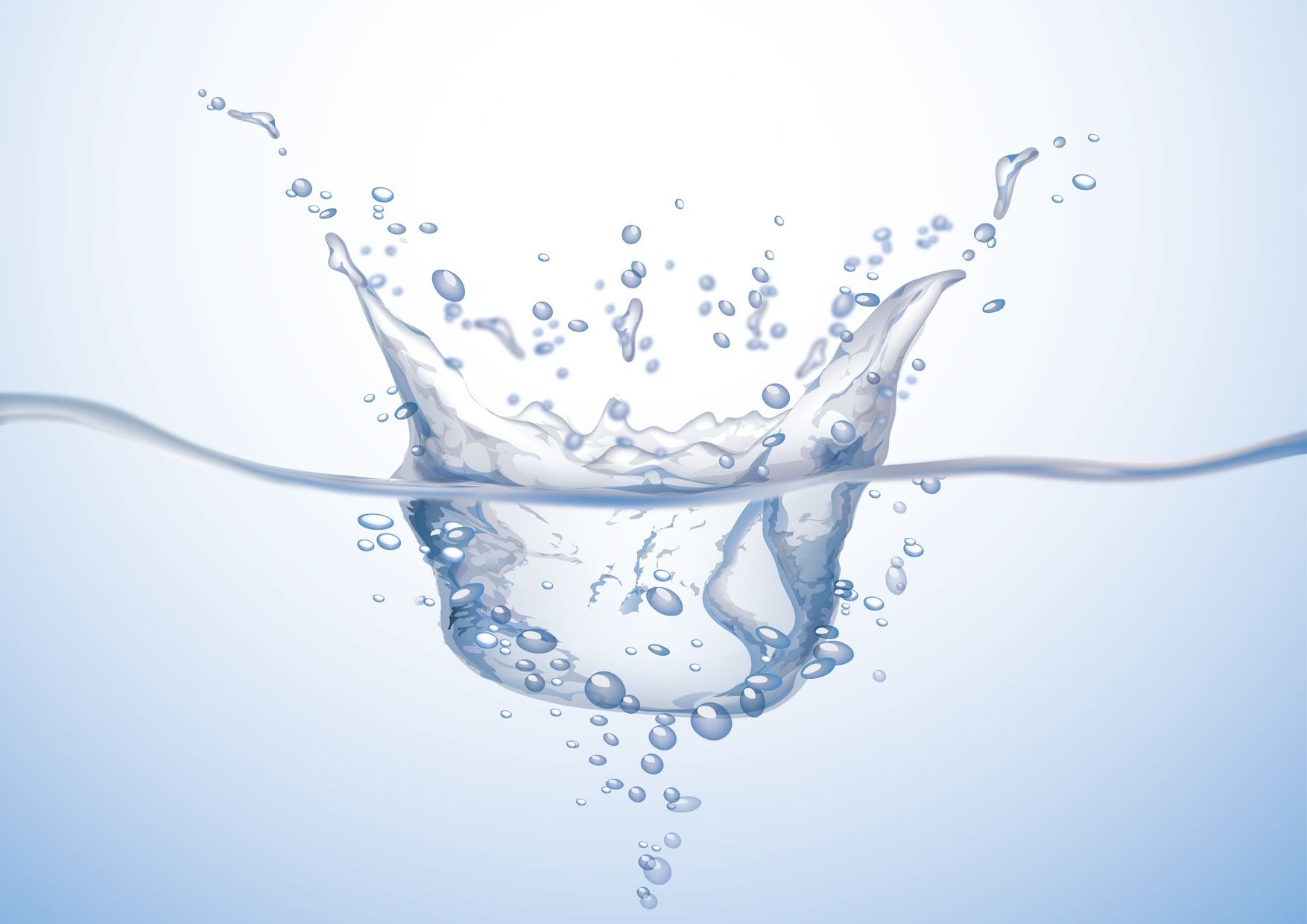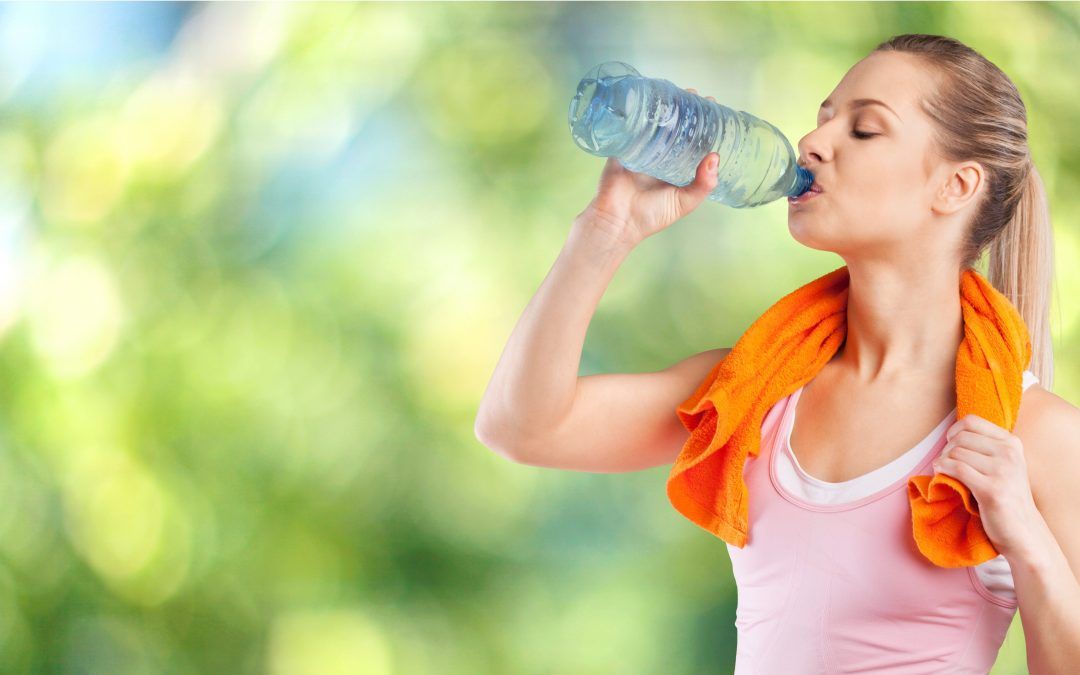Water is chemically the simplest, yet most important nutrient in the body. We can survive without any other macronutrient or micronutrient, but not without water for long. Read on to learn all the benefits of water, how water helps you to lose body fat, how much water should you drink, how do you know if you drink enough water, and the dangers of being dehydrated.
The Benefits of Water
We are mostly water, making it indispensable. The human body can be up to 70% water, the blood around 85%, and the brain up to 90%. Water has countless roles in the body and it is needed for every bodily function. This fact should illuminate the necessity of euhydration, being fully hydrated and having adequate water flow in the body.
Here are some of the reasons to stay hydrated:
- Proper hydration protects the brain by allowing nutrients to flow thoroughly. In turn, brain cells fulfill their duties and mental sharpness takes place.
- Water is necessary for the transportation of nutrients and oxygen to all the cells of the body, as well as the utilization of water-soluble vitamins.
- It aids in digestion which is essential for colon health and active bowel movement.
- Water is crucial for energy production, cell function, and temperature control.
- It allows the kidneys to efficiently remove toxins, sparing unnecessary stress on the liver.
- Water is essential in releasing excess acidity, which takes place along with a toxic overload (high accumulation of toxins in the body). Consequently, it raises pH levels, making you healthier.
Water to Lose Weight
Another reason to stay hydrated is to lose weight. Water is not only beneficial for proper body functioning, it can help you achieve your fat loss and fitness goals more efficiently.
- Water allows to properly metabolize food and eliminate waste.
- It accelerates your metabolism.
- A properly hydrated body is more able to burn more fat since it can function properly and allow the removal of fat breakdown.
- It enables joint lubrication, as well as higher physical performance and endurance.
- Drinking water throughout the day helps you stay full and curb overeating.

How Much Water Do You Need Daily?
Now that you know why you should be hydrated, do you know how much water do you actually need? You probably heard that you should drink 8 – 8oz glasses of water per day. However, your hydration needs change across individuals and are dependent on many factors, including age, sex, climate, activity levels, fluid loss, excretion rate, and diet among others. You should aim to drink at least 1/2 ounce to 1 ounce of water for each pound you weigh. For example, if you weigh 150 pounds, that would be 75 to 150 ounces of water a day.
It is also important to keep hydrated by regularly consuming foods with high water content like organic fresh raw fruits and vegetables, being that they hydrate cells from the inside out. For example, a cucumber can produce hydration levels twice that of water due to its 96% water content. On the other hand, most processed foods (high in sodium), sugar, alcohol, and caffeine speed up the dehydration process.
Keep in mind that if you exercise, your hydration needs increase. The Strength and Conditioning Journal recommends fluid replacement before, during, and after exercise:
- You should drink 17- 20 oz of fluid 2- 3 hrs before working out and another 8 oz 20- 30 min before starting your workout.
- Shorter duration exercise bouts (<1 hour) require that athletes replace fluid losses by drinking 7- 10 oz of water every 20 minutes
- High-intensity events lasting longer than 1 hour or lower-intensity events lasting several hours would warrant the use of carbohydrates in addition to simply replacing fluid losses: 30 to 60 g/h (0.5–1 g/min) of carbohydrates to maintain blood glucose levels and exercise performance
- Athletes also need to replace electrolytes lost through sweating. You can do so by adding a pinch of high-quality sea or Himalayan salt to your water
- Post-workout, you should drink at least 8 oz of fluids
How Do You Know If You Drink Enough Water?
A simple method of assessing hydration is via urine color (your urine’s color should be light yellow) and your thirst (being thirsty means that you are already dehydrated and had significant fluid losses).
What Happens When You Dehydrated?
Dehydration (loss of essential water and electrolytes in the body) has devastating effects on the body’s functionality.
- Fluid loss of even 2% starts to impair temperature regulation and reduces aerobic performance.
- A higher level of dehydration impairs concentration, alertness, memory, visual-motor skills, mood, muscular strength, and aerobic capacity. It also interrupts pH balance, as well as thermoregulatory and cardiovascular responses, which increase body temperature, skin blood flow, and muscle cramps.
- Severe dehydration can be life-threatening. Heat illness can cause exhaustion, fatigue, temperature changes in the body, lightheadedness, nausea, stomach cramps, palpitations, hyperventilation, and vomiting.
- Exertional heatstroke can cause confusion, amnesia, sensory-motor deficits, visual disturbances, disorientation, headaches, inability to walk, dizziness, seizures, delirium, coma, and even death.
As you can see, there are many reasons why you should stay hydrated. Euhydration allows the body to perform at superlative levels, lose body fat, maintain an ideal slightly alkaline state and pH balance, and maintain optimal health.
To a Fitter Healthier You,
The Fitness Wellness Mentor



